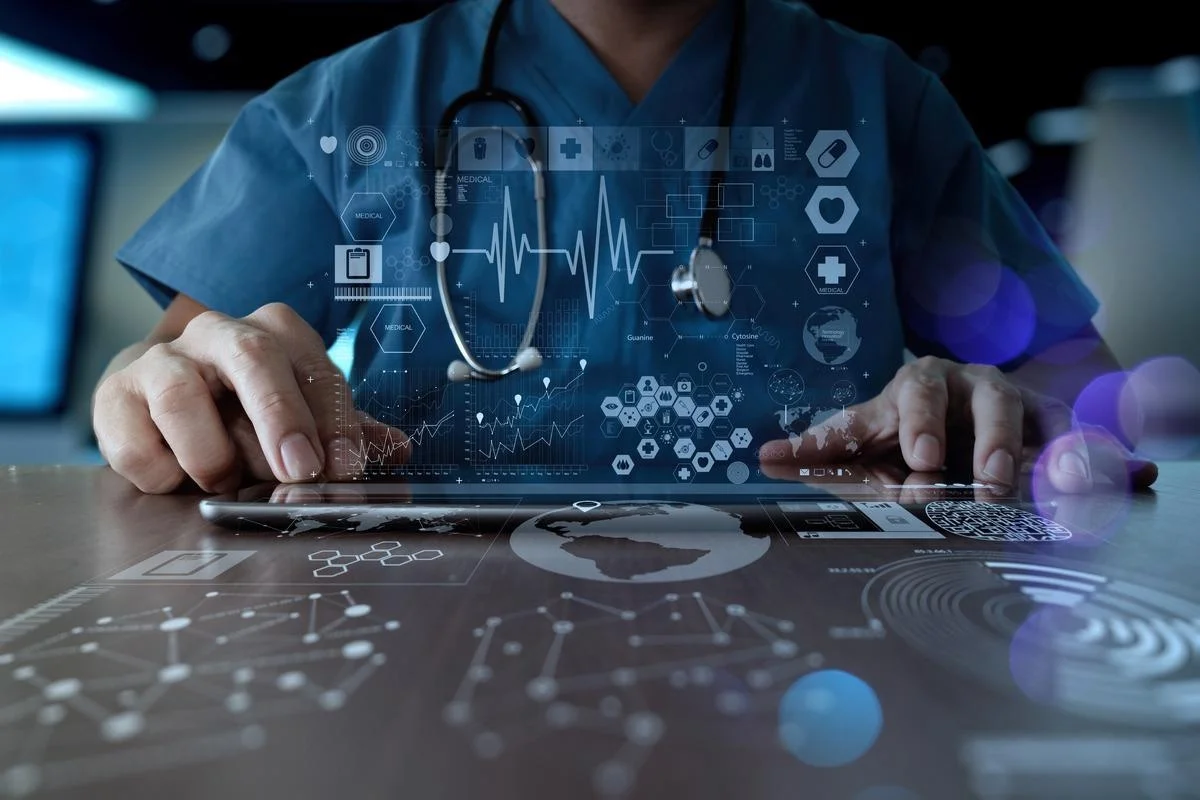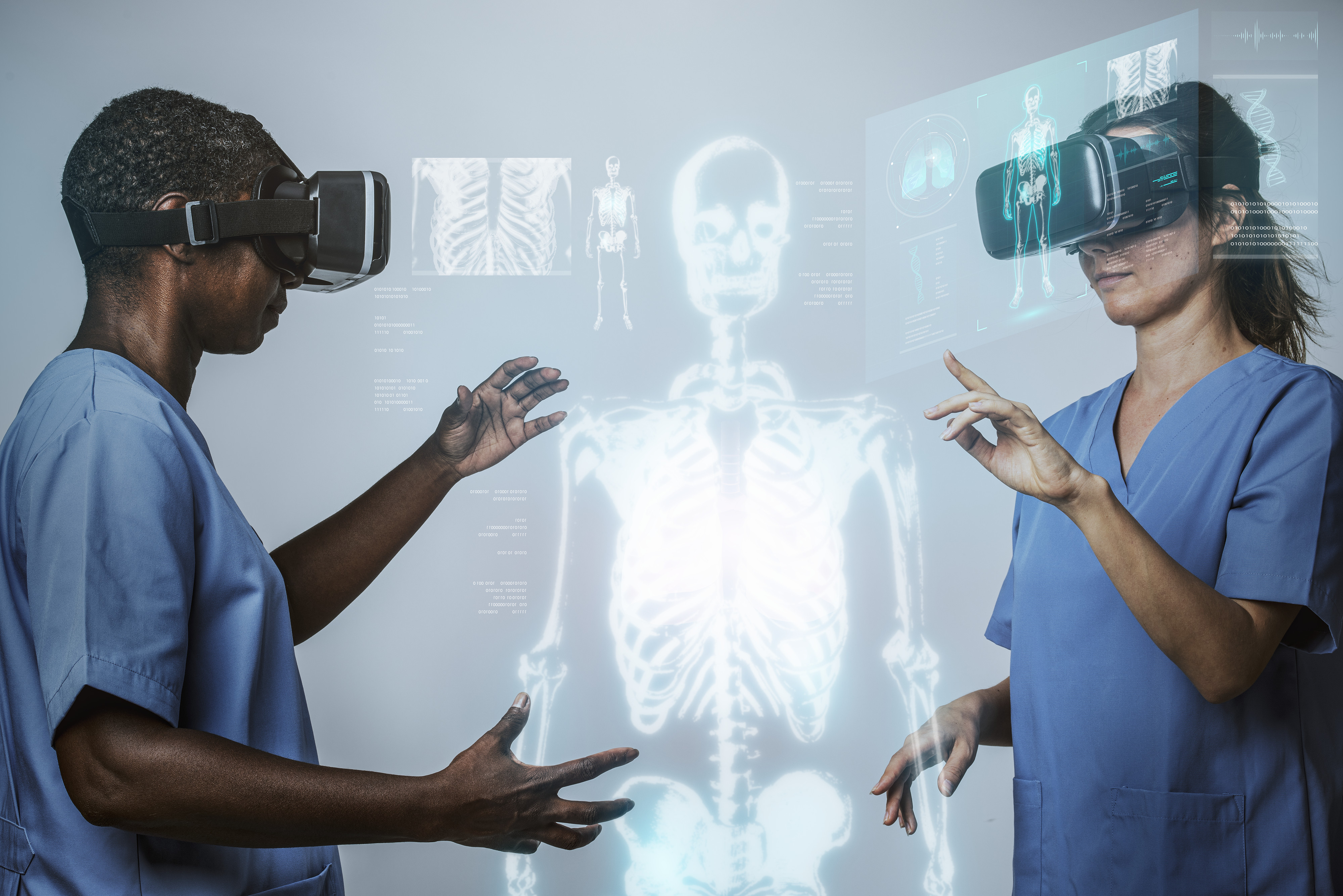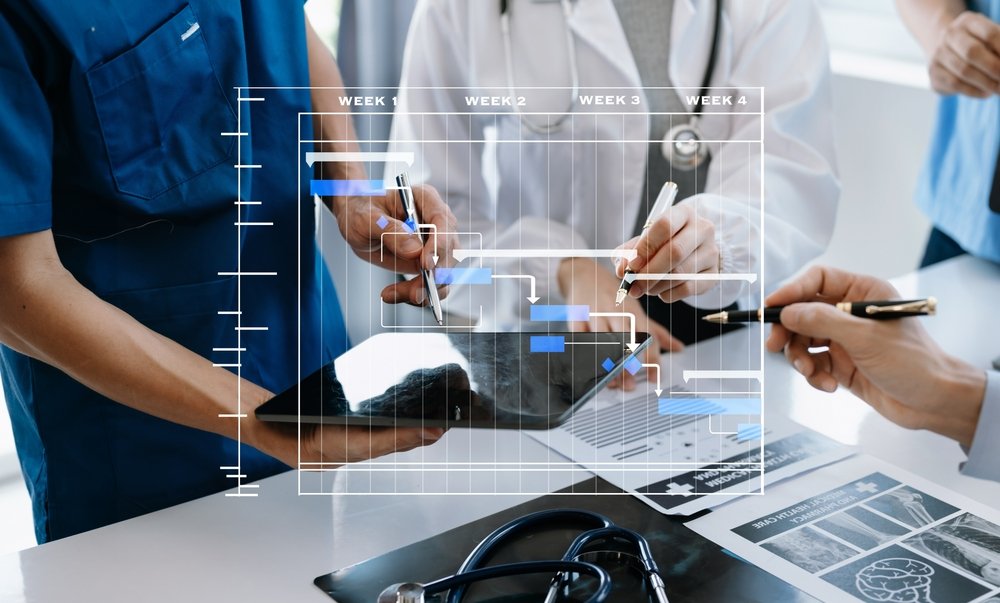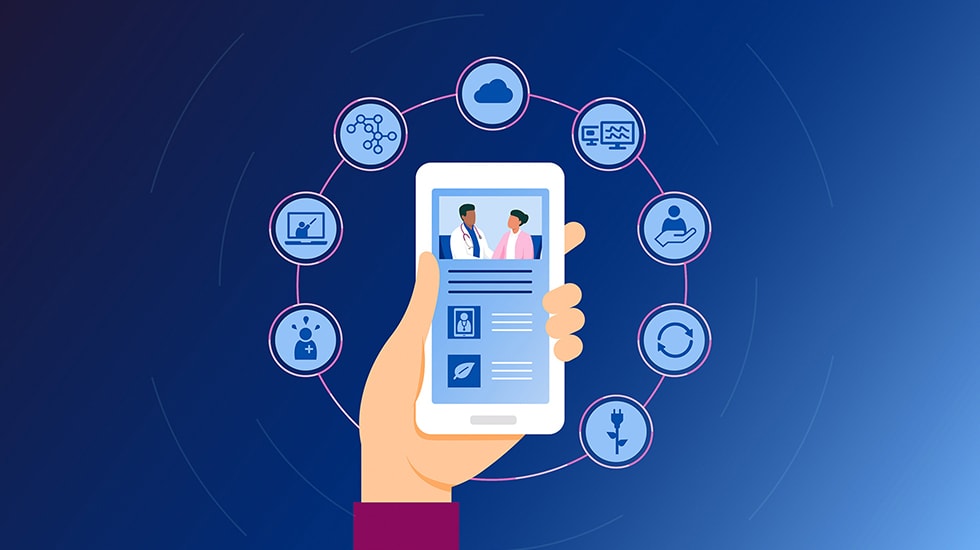In the modern era, technology has revolutionized nearly every aspect of our lives, and healthcare is no exception. The integration of advanced technologies into healthcare delivery has transformed how medical services are provided, making them more efficient, accessible, and effective. This article explores the profound impact of technology on healthcare delivery, highlighting the benefits, challenges, and future prospects. Additionally, we will discuss how Al Mithaq Institute, with its comprehensive online and offline educational programs, is equipping professionals with the skills needed to thrive in this evolving landscape.
The Evolution of Healthcare Delivery
Traditional Healthcare Delivery
Traditionally, healthcare delivery relied heavily on in-person consultations, paper-based records, and manual processes. While these methods served their purpose, they were often time-consuming, prone to errors, and limited in scope. Patients had to visit healthcare facilities for even minor consultations, leading to long wait times and limited access to specialized care.
The Advent of Technology in Healthcare
The advent of technology has ushered in a new era of healthcare delivery. From electronic health records (EHRs) to telemedicine, technology has streamlined processes, improved patient outcomes, and expanded access to care. The integration of artificial intelligence (AI), big data, and the Internet of Things (IoT) has further enhanced the capabilities of healthcare providers, enabling them to deliver personalized and precise care.
Key Technological Innovations in Healthcare
Electronic Health Records (EHRs)
EHRs have replaced traditional paper-based records, providing a comprehensive and easily accessible digital record of a patient's medical history. EHRs enable healthcare providers to quickly retrieve patient information, track medical histories, and coordinate care across different specialties. This has significantly reduced errors, improved patient safety, and enhanced the overall quality of care.
Telemedicine and Telehealth
Telemedicine and telehealth have revolutionized the way healthcare services are delivered, especially in remote and underserved areas. Through video consultations, remote monitoring, and mobile health apps, patients can now access medical care from the comfort of their homes. This has not only improved access to care but also reduced the burden on healthcare facilities.
Artificial Intelligence (AI) and Machine Learning
AI and machine learning are transforming healthcare by enabling predictive analytics, personalized medicine, and automated diagnostics. AI-powered tools can analyze vast amounts of data to identify patterns, predict disease outbreaks, and recommend treatment plans. This has led to more accurate diagnoses, better patient outcomes, and reduced healthcare costs.
Wearable Technology and IoT
Wearable devices and IoT-enabled medical devices are empowering patients to take control of their health. From fitness trackers to smartwatches that monitor vital signs, these devices provide real-time data that can be shared with healthcare providers. This continuous monitoring allows for early detection of potential health issues and timely interventions.
Robotics and Automation
Robotics and automation are playing a crucial role in surgical procedures, rehabilitation, and patient care. Robotic-assisted surgeries offer greater precision, reduced recovery times, and minimized risk of complications. Automation in healthcare facilities has streamlined administrative tasks, allowing healthcare providers to focus more on patient care.
Benefits of Technology in Healthcare Delivery
Improved Access to Care
Technology has significantly improved access to healthcare services, especially for individuals in remote and underserved areas. Telemedicine and mobile health apps have made it possible for patients to consult with healthcare providers without the need for physical visits. This has been particularly beneficial during the COVID-19 pandemic, where social distancing measures limited in-person consultations.
Enhanced Patient Outcomes
The integration of technology in healthcare has led to better patient outcomes. AI-powered diagnostics, personalized treatment plans, and continuous monitoring have resulted in more accurate diagnoses, timely interventions, and improved recovery rates. Patients are now able to receive care that is tailored to their specific needs, leading to better overall health.
Increased Efficiency and Reduced Costs
Technology has streamlined healthcare processes, reducing administrative burdens and improving efficiency. Automated systems for scheduling, billing, and record-keeping have minimized errors and saved time. Additionally, predictive analytics and AI have helped in identifying potential health issues early, reducing the need for expensive treatments and hospitalizations.
Empowerment of Patients
Wearable technology and health apps have empowered patients to take an active role in managing their health. Patients can now monitor their vital signs, track their fitness levels, and receive personalized health recommendations. This has led to increased awareness and proactive management of health conditions.
Challenges and Considerations
Data Privacy and Security
The widespread adoption of technology in healthcare has raised concerns about data privacy and security. With the increasing amount of sensitive patient data being stored and transmitted electronically, there is a risk of data breaches and unauthorized access. Healthcare providers must implement robust security measures to protect patient information and comply with regulations such as the Health Insurance Portability and Accountability Act (HIPAA).
Digital Divide
While technology has improved access to healthcare, there is still a digital divide that limits its reach. Individuals in rural and underserved areas may lack access to high-speed internet and digital devices, preventing them from benefiting from telemedicine and other digital health services. Addressing this divide is crucial to ensuring equitable access to healthcare.
Integration and Interoperability
The integration of various technological systems and ensuring interoperability between them is a significant challenge. Healthcare providers often use different EHR systems and digital tools that may not communicate effectively with each other. This can lead to fragmented care and hinder the seamless exchange of patient information.
Ethical Considerations
The use of AI and machine learning in healthcare raises ethical concerns, particularly regarding bias and decision-making. AI algorithms are only as good as the data they are trained on, and if the data is biased, it can lead to unfair treatment recommendations. Ensuring transparency, fairness, and accountability in AI-driven healthcare is essential.
The Future of Technology in Healthcare Delivery
Personalized Medicine
The future of healthcare lies in personalized medicine, where treatments are tailored to an individual's genetic makeup, lifestyle, and environment. Advances in genomics, AI, and big data analytics are paving the way for more precise and effective treatments. This approach has the potential to revolutionize disease prevention and management.
Virtual Reality (VR) and Augmented Reality (AR)
VR and AR technologies are finding applications in medical training, patient education, and even treatment. VR can be used for immersive medical training simulations, allowing healthcare professionals to practice complex procedures in a risk-free environment. AR can assist surgeons by providing real-time visualizations during procedures, enhancing precision and outcomes.
Blockchain in Healthcare
Blockchain technology has the potential to transform healthcare by providing a secure and transparent way to manage patient data. Blockchain can ensure the integrity and confidentiality of medical records, streamline data sharing between providers, and reduce fraud. This technology could play a crucial role in improving data security and interoperability.
AI-Driven Drug Discovery
AI is revolutionizing the drug discovery process by accelerating the identification of potential drug candidates and predicting their efficacy. This has the potential to significantly reduce the time and cost associated with bringing new drugs to market. AI-driven drug discovery could lead to the development of more effective treatments for a wide range of diseases.
How Al Mithaq Institute is Preparing Professionals for the Future of Healthcare
At Al Mithaq Institute, we recognize the transformative impact of technology on healthcare delivery. Our comprehensive online and offline educational programs are designed to equip healthcare professionals with the skills and knowledge needed to thrive in this evolving landscape.
Accredited Programs
Our diplomas in healthcare management, medical informatics, and health technology are accredited by reputable organizations, ensuring that our graduates are well-prepared to meet the demands of the industry. Our programs cover a wide range of topics, including EHR implementation, telemedicine, AI in healthcare, and data analytics.
Expert Faculty
Our faculty members bring over a decade of professional experience, combining academic excellence with practical knowledge. They are dedicated to delivering insightful education and engaging training courses that prepare students for real-world challenges in healthcare technology.
Flexible Learning Options
We understand that healthcare professionals have busy schedules, which is why we offer flexible learning options. Our programs are available both online and in-person, allowing students to choose the format that best suits their needs. This flexibility ensures that our students can balance their education with their professional and personal commitments.
Comprehensive Support
At Al Mithaq Institute, we are committed to the success of our students. We provide high-quality resources and personalized support to ensure that every student can achieve their goals. Whether you are studying online or in-person, you will have access to a collaborative learning environment, timely feedback, and opportunities to connect with peers and experts.
Focus on Practical Skills
Our programs emphasize the development of practical skills that are directly applicable to the healthcare industry. From hands-on training in EHR systems to real-world case studies in telemedicine, our students gain the experience needed to excel in their careers. We also offer specialized training in emerging technologies such as AI, blockchain, and wearable devices.
Career Advancement
Graduates of Al Mithaq Institute are well-positioned to advance their careers in the rapidly evolving field of healthcare technology. Our programs are designed to enhance your professional growth and development, opening up new opportunities in healthcare management, medical informatics, and health technology.
Conclusion
The impact of technology on healthcare delivery is profound and far-reaching. From improving access to care and enhancing patient outcomes to increasing efficiency and reducing costs, technology is transforming the way healthcare services are provided. However, challenges such as data privacy, the digital divide, and ethical considerations must be addressed to fully realize the potential of technology in healthcare.
At Al Mithaq Institute, we are committed to preparing healthcare professionals for the future of healthcare delivery. Our accredited programs, expert faculty, flexible learning options, and comprehensive support ensure that our students are equipped with the skills and knowledge needed to thrive in this evolving landscape. Whether you are looking to enhance your career or stay ahead of the latest trends in healthcare technology, Al Mithaq Institute is your partner in success.
Explore our courses today and take the first step towards a rewarding career in healthcare technology. Visit our courses page to learn more about our programs and how we can help you achieve your professional goals. For more information, feel free to contact us through our contact page. Stay updated with the latest trends and insights in healthcare technology by visiting our blog page. Learn more about our mission and values on our about us page.









